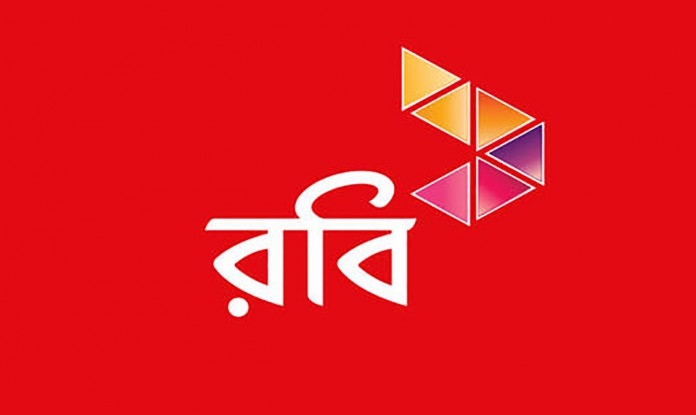
Mobile operator Robi Axiata has cited the 2 percent minimum tax on turnover on stock market-listed telecom firms as a reason behind its decision not to pay dividends to investors.
The officials of the telecom firm, the second-largest in Bangladesh, said that the company’s effective tax has increased to 71.8% in 2020 as a result of the minimum turnover tax, which in turn has significantly reduced its actual net profit.
But even if the dividends were disbursed, the amount would have been ‘minimal’ and it would not have a ‘positive effect’ on the market, according to them. Therefore, with its future in mind, the company decided to reinvest the profits without paying dividends.
The newly-listed telecom firm published a summary of its audited financial statements approved by its board of directors for the year 2020 on its website on Feb 16.
The company’s earnings per share surged more than eight times year-on-year to 0.33 taka in 2020, but it did not announce dividends for the year in a move that disheartened the investors.
The Bangladesh Securities and Exchange Commission (BSEC) subsequently summoned officials of Robi Axiata on Tuesday for an explanation. However, no specific decision came from the meeting.
Later, Robi’s Managing Director and Chief Executive Officer Mahtab Uddin Ahmed briefed the media on its fourth-quarter financial record of 2020.
Asked about the reason for the decision not to pay dividends, he said, “If we paid dividends in line with our dividend policy, it would be of such an insignificant percentage that the question of critical concern was whether it would have a positive impact.”
“The second thing is that if we re-invest these dividends, it would help with our future growth. Many other have factors were also considered.”
Robi’s Chief Corporate and Regulatory Officer Shahed Alam also defended the decision not to pay dividends to investors.
In a statement, he said Robi was being deprived of the “benefits of the 40 percent corporate tax” levied on listed telecom operators as the government has not revoked the 2 per cent minimum turnover tax as a precondition for entering the stock market, despite making assurances to the contrary.”

“Considering the potential for business growth and the overall future of the company, Robi’s board of directors has decided not to pay any dividend for 2020.”
Shahed said Robi has done well commercially in 2020 despite numerous adversities.
Robi’s earnings per share (EPS) has risen to Tk 0.33 in 2020, six times higher than Tk 0.04 in 2019. “Had the 2 percent minimum corporate tax on revenues been withdrawn, this EPS could have easily increased to Tk O.64,” he said.
Based on the Dhaka Stock Exchange data on Feb 16, Robi’s price-to-earnings or P/E ratio stood at 139.39. The ratio is much higher than 14.67 of Grameenphone, the country’s largest mobile telecom operator in terms of subscriber base.
Market analysts consider a share as a “good one” if the P/E ratio is between 15 and 20. The companies with a promising future can have higher P/E ratios.
After the decision on dividends was announced, Robi’s share price plunged to Tk 39, from Tk 46, at the start of trading on the Dhaka Stock Exchange on Tuesday.
Asked if this would have an adverse effect on Robi’s reputation, the telecom firm’s CEO said, “Everyone needs to understand that dividends are important but it is not the only factor on which the company’s performance can be evaluated. We are doing well in every aspect – that also need to be considered.
“Only looking at the dividend would be misleading, we can’t control the stock market. We want to make sure that we share the benefits of our progress with our shareholders.”
(Source: bdnews24)

